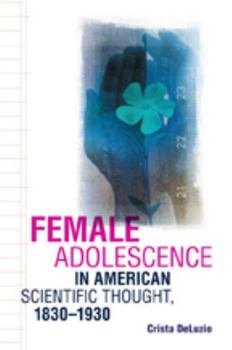Female Adolescence in American Scientific Thought, 1830-1930
(Part of the New Studies in American Intellectual and Cultural History Series)
In this groundbreaking study, Crista DeLuzio asks how scientific experts conceptualized female adolescence in the nineteenth and early twentieth centuries. Revisiting figures like G. Stanley Hall and Margaret Mead and casting her net across the disciplines of biology, psychology, and anthropology, DeLuzio examines the process by which youthful femininity in America became a contested cultural category.
Challenging accepted views that professionals invented adolescence during this period to understand the typical experiences of white middle-class boys, DeLuzio shows how early attempts to reconcile that conceptual category with femininity not only shaped the social science of young women but also forced child development experts and others to reconsider the idea of adolescence itself.
DeLuzio's provocative work permits a fuller understanding of how adolescence emerged as a crisis in female development and offers insight into why female adolescence remains a social and cultural preoccupation even today.





